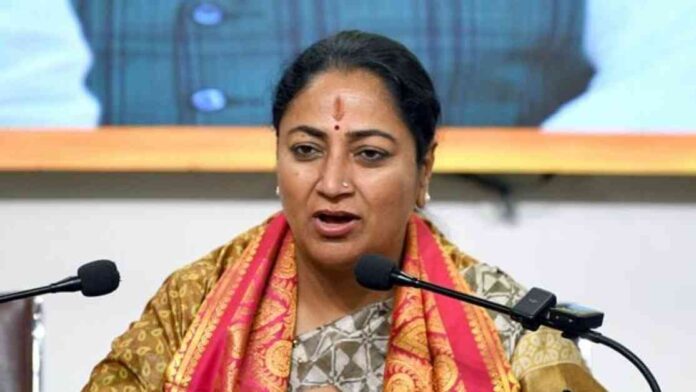Delhi Chief Minister Rekha Gupta has made headlines with bold accusations against the Aam Aadmi Party (AAP), claiming that the previous government left the public exchequer ’empty’ before the Bharatiya Janata Party (BJP) took over. This revelation has sparked controversy and raised concerns about the financial state of affairs in the national capital.
In a recent press conference, CM Rekha Gupta expressed her dismay over the state of the public finances, citing multiple meetings held to assess the situation. She emphasized that the AAP administration’s alleged mismanagement had drained the treasury, leaving a significant void that the current government must address.
The focal point of this controversy revolves around the BJP’s ambitious promise to provide ₹2,500 per month to women in Delhi, a key electoral pledge that has garnered widespread attention. Despite the financial challenges inherited from the previous regime, CM Rekha Gupta has assured the public that the women’s aid scheme will be implemented with meticulous planning and oversight.
The BJP’s commitment to delivering on this promise is underscored by CM Rekha Gupta’s announcement that the first installment of the monthly aid will be disbursed to eligible women by March 8. This targeted initiative aims to empower women and fulfill Prime Minister Narendra Modi’s vision for inclusive growth and support for vulnerable segments of society.
As the political landscape in Delhi undergoes a transition with the change in government, CM Rekha Gupta has underscored the accountability that the AAP must uphold. She emphasized that the upcoming Assembly session will scrutinize the financial records and demand transparency regarding every rupee spent during the previous administration’s tenure.
Expert Commentary: Assessing the Financial Impact
Economic experts have weighed in on the implications of the alleged depletion of the public exchequer by the AAP government. Dr. Neha Sharma, a renowned economist, highlighted the importance of fiscal responsibility in governance. She stated, “The financial health of any state government is critical for sustainable development and the delivery of social welfare programs. Any mismanagement of public funds can have far-reaching consequences for the economy and public services.”
Dr. Sharma further noted that the BJP’s commitment to launching the women’s aid scheme despite financial constraints demonstrates a proactive approach to addressing societal needs. She emphasized the significance of prudent financial planning and resource allocation to ensure the effective implementation of such welfare initiatives.
Public Reaction and Expectations
The public response to CM Rekha Gupta’s revelations has been mixed, with some expressing concern over the implications of an ’empty’ public exchequer on essential services and infrastructure projects. Many residents are eagerly awaiting the rollout of the ₹2,500 women’s aid scheme, viewing it as a crucial lifeline for vulnerable segments of society.
In light of these developments, the upcoming Assembly session promises to be a pivotal moment in Delhi’s political landscape. As the BJP government prepares to unveil its agenda and priorities, the scrutiny of past financial decisions and the commitment to transparency will set the tone for governance in the capital city.
As the nation watches the unfolding saga of financial accountability and social welfare initiatives, the spotlight remains firmly on CM Rekha Gupta and her administration’s ability to navigate the challenges ahead. The promise of a brighter future for women in Delhi hinges on effective governance, responsible financial stewardship, and a commitment to inclusive development that leaves no citizen behind.

















